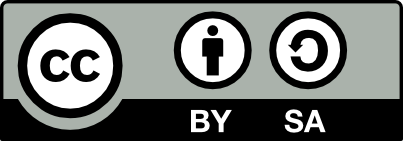Archives
International Journal of Zoology and Applied Biosciences Review Article

Role of integrated pest management in Agriculture
Mohammad Rafiq Bhat, Dipankar Brahma, Nilav Ranjan Bora, Mukil Vas A, Ashick Rajah R, Vasanth V, Ashwin Niranjan M
Year : 2024 | Volume: 9 | Issue: 2 | Pages: 40-46
Received on: 04/02/2024
Revised on: 20/02/2024
Accepted on: 23/03/2024
Published on: 12/04/2024
-
Mohammad Rafiq Bhat, Dipankar Brahma, Nilav Ranjan Bora, Mukil Vas A, Ashick Rajah R, Vasanth V, Ashwin Niranjan M ( 2024).
Role of integrated pest management in Agriculture
. International Journal of Zoology and Applied Biosciences, 9( 2), 40-46.
-
click to view the cite format
Abstract
Agriculture in India has a pivotal role in promoting food security, livelihoods and sustainable development, especially for the rural poor. However, it is increasingly affected by issues such as degradation of natural resources, increased frequency of extreme weather events and change in rainfall patterns that are linked to climate change. The population is also growing fast, affecting the demand for food and other agricultural products. Due to these factors and given the limited availability of agricultural land, the burden on the farming sector has increased manifold. The various crop plants are greatly affected by multifarious types of pests which not only result in reduced productivity figures but also distresses the farmers as they get less revenue due to crop losses to these pests. Pest attack coupled with disease breakout sometimes results in suicidal situations as has been witnessed in our country. As such strong measures have to be taken up for bringing the pest attack to halt forthwith and reduce the incidence of pests. According to estimates by the Food and Agriculture Organization of the United Nations (FAO), East Asia (including China) and South Asia together account for more than half of pesticide use in developing countries in the world. Moreover, farmers often apply large quantities of highly toxic pesticide or even use banned or spurious ones, instead of less toxic alternatives. In order to overcome these negative effects Integrated Pest Management (IPM) offers an alternative that is safer for human and environmental health. Integrated pest management (IPM), also known as integrated pest control (IPC) is a broad-based approach that integrates practices for economic control of pests. IPM is the best combination of cultural, biological and chemical measures to manage diseases, insects, weeds and other pests. As the global population is on the rise the demand of growing world population for food and fiber require farmers to produce more crops on existing farm land. IPM is a big part of the solution. Increasingly it is being adopted in both developed and developing countries for long-term, sustainable agriculture that achieves adequate, safe and quality food production. IPM does not, however, consist of any absolute or rigid criteria. As it is a flexible system that makes good use of local resources and the latest research, technology, knowledge and experience. The main of the IPM aims to suppress pest populations below the economic injury level (EIL)
Keywords
Agriculture,Frequency,FAO,IPM,IPC.











